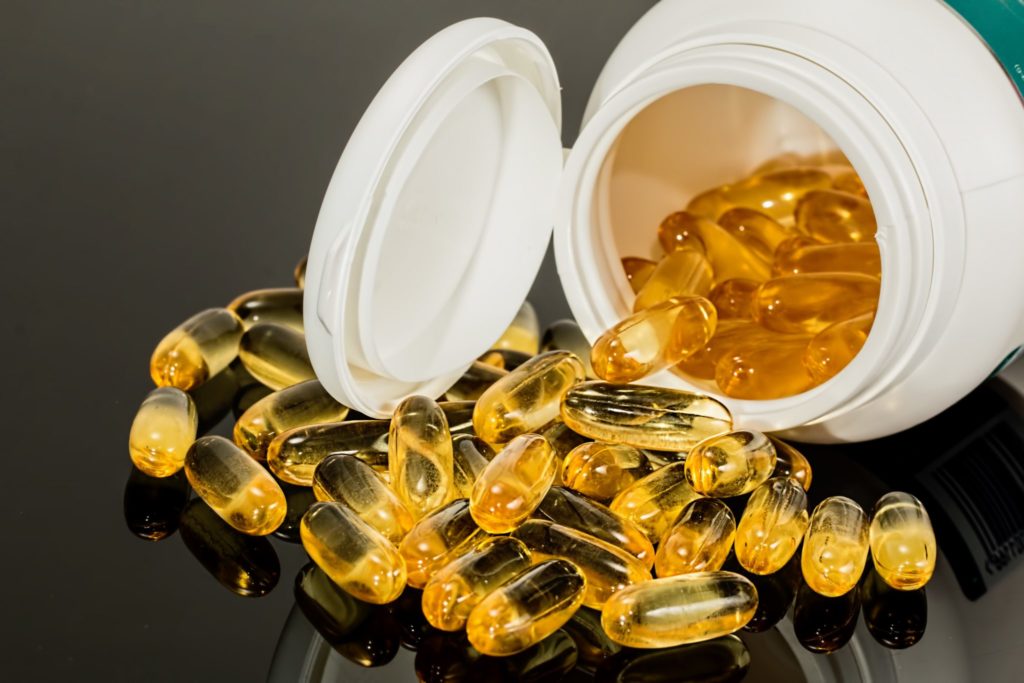When you walk into a grocery store or pharmacy, you’ll likely walk past rows and rows of vitamins, all touting various health benefits. From multivitamins for men and women to specific vitamins that focus in on one key benefit, the options can be overwhelming, not to mention expensive.
So where to even begin? Are vitamins even necessary? What’s the one vitamin you should choose over all other vitamins?
The first answer: Always consult your doctor before adding a new supplement to your routine.
The second answer is a bit more complex.
Are vitamins even important?
Think of your body as a working machine. Every single day, your body is creating skin, muscles and bone, and its blood is carrying nutrients and oxygen throughout the body. That’s a lot of work! To make sure it gets through the day and carries out all of its tasks, it needs fuel.
Your body needs at least 30 vitamins, minerals and dietary components each day to make sure it does everything it needs to do.
Typically, those vitamins and minerals can be pulled in from what you eat. In its natural process, your body turns your food into fuel. But if your food isn’t nutrient-rich, then your body may not have enough fuel to produce.
So, unless you’re consistently eating food that’s rich in vitamins A, B, C, D, E and K (to name a few), you may want to look into vitamins.
Foods rich in Vitamin A
Vitamin A is what helps you form healthy teeth, bones, soft tissues and skin, and it also helps you fight off bacterial and viral infections.
- Carrots
- Sweet potatoes
- Winter squash
- Cantaloupe
- Apricots
- Spinach
- Kale
- Collard greens
Foods rich in Vitamin B
Vitamin B is one of the more complex vitamins out there. Vitamin B6, B12 and B9 are crucial when it comes to nerve function and the formation of red blood cells in your body.
Foods that are high in vitamins B6 and B12 are:
- Meat
- Poultry
- Fish
- Seafood
- Eggs
- Milk
Foods that are high in vitamin B9, or folic acid, include:
- Leafy green vegetables
- Poultry
Foods rich in Vitamin C
Vitamin C is likely the one you’re most familiar with—it’s in your orange juice! Vitamin C is an antioxidant that helps protect the health of your cells and improves how your body absorbs iron (another important nutrient).
Foods high in vitamin C include:
- Papaya
- Citrus
- Strawberries
- Bell peppers
- Broccoli
- Brussels sprouts
- Kale
- Mustard greens
- Chard
Foods rich in Vitamin D
Vitamin D is an exciting vitamin, as you don’t just get it from your food, you get it from the sun! Vitamin D helps your body absorb calcium and is critical for your overall immune system.
Foods high in vitamin D include:
- Salmon
- Herring
- Catfish
- Trout
- Oysters
- Milk
- Eggs
- Shiitake mushrooms
Foods rich in Vitamin E
Vitamin E helps protect your cells from getting damaged—a vital component when you’re exposed to harmful elements each day.
Foods high in Vitamin E include:
- Sunflower seeds
- Almonds
- Spinach
- Swiss chard
- Turnip greens
- Bell peppers
- Asparagus
Foods rich in Vitamin K
Vitamin K is the vitamin that helps your body form blood clots, and is also incredibly beneficial in older adults.
Foods high in Vitamin K include:
- Kale
- Spinach
- Collard greens
- Swiss chard
- Turnip greens
- Mustard greens
- Romaine lettuce
- Parsley
- Brussels sprouts
- Broccoli
- Asparagus
What vitamin should you be taking?
Everyone’s body is different. So many factors—from age, genetics, lifestyle, diet and exercise—go into how your body takes in and manufactures vitamins and minerals. The best step in determining which vitamin you should take, is to first consult your healthcare provider.
He or she will be able to run a blood work test to show the areas in which you’re deficient, if any.
Additionally, if your calorie consumption is less than 1,500 calories per day, you may need a vitamin to ensure your body is getting the right nutrients. Women who are pregnant may also need additional supplements, at the direction of their health provider or birth specialist.
One important thing to note, however is this: A daily multivitamin supplements your diet, it is not intended to correct a bad diet. If you’re living off of fast food or convenience store snacks, but taking a multivitamin, your efforts are being wasted or, at least, aren’t being nearly as impactful.
If you need help choosing a vitamin that’s right for you, or even determining if vitamins are necessary, stop by and see us, or schedule an appointment with us.
